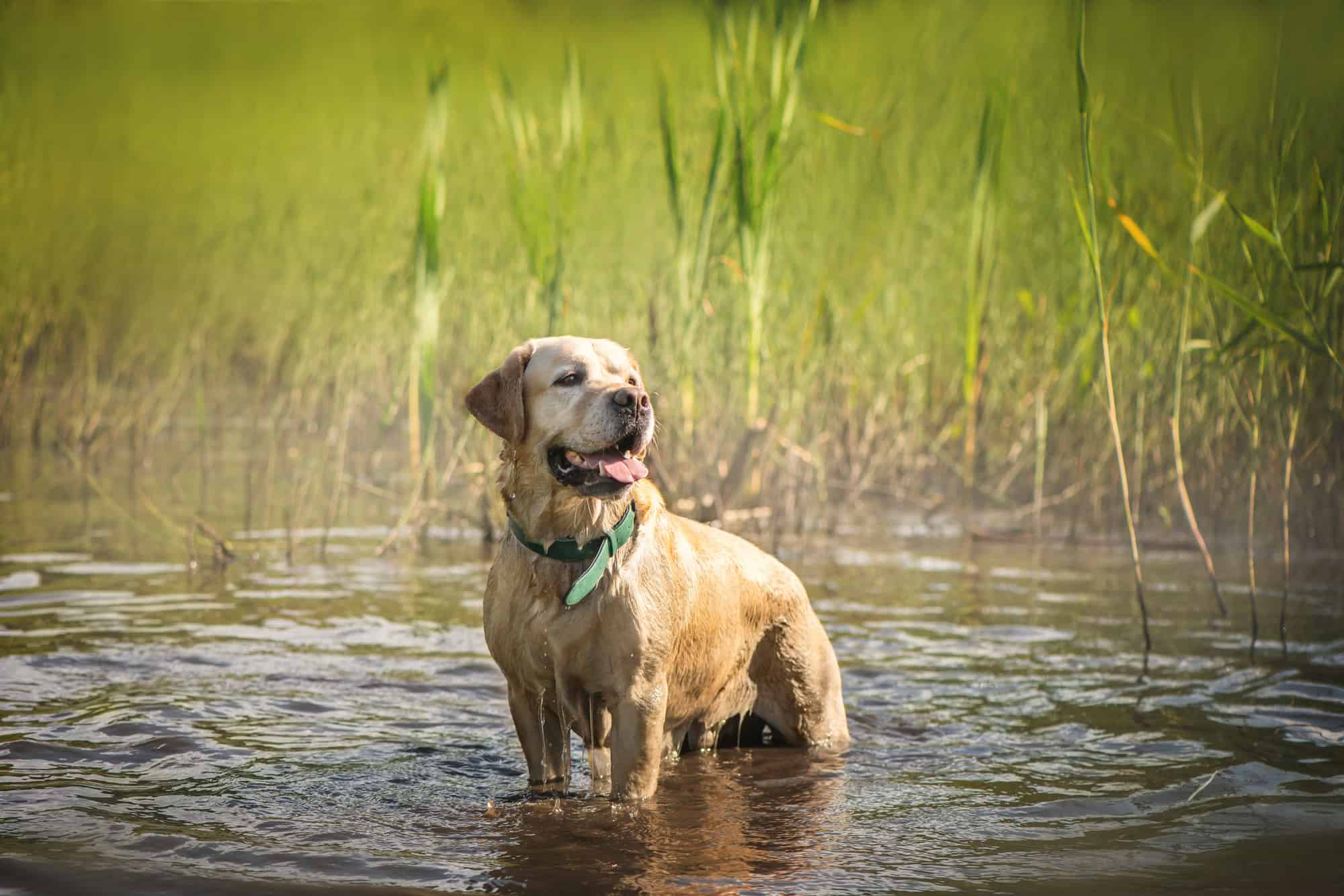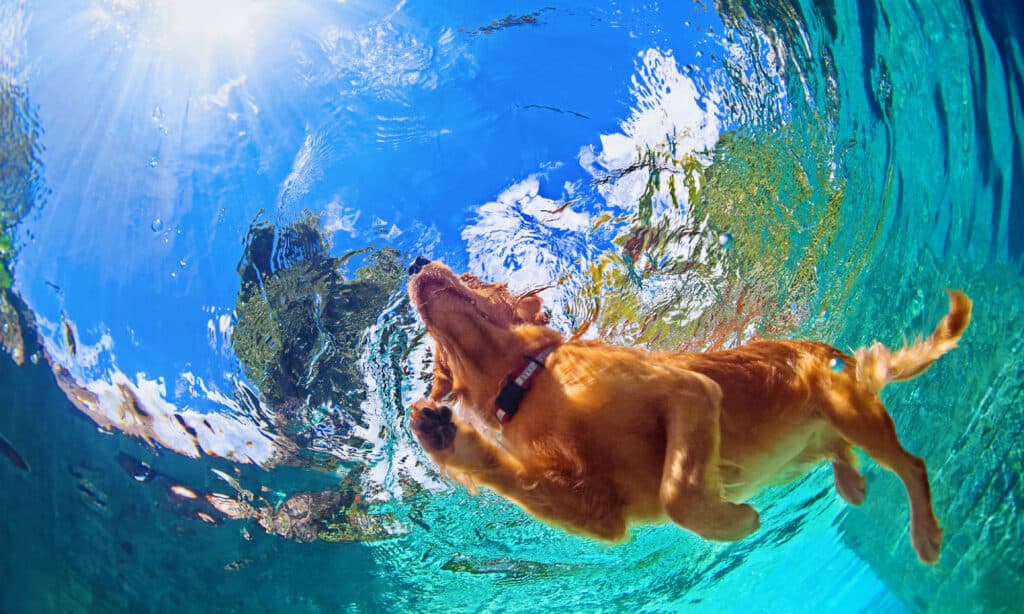There are many breeds of dog that love nothing more than going for a swim! Some dogs would splash around all year if they could, but is it safe for dogs to swim during the winter? Many of us have been told to avoid cold water due to the threat of hypothermia, and are dogs are just as susceptible to this threat as humans are!
It’s important to keep your water-loving pup safe, so let’s discuss everything you need to know about dogs swimming in cold water! Let’s dive in.
Is Swimming In Cold Water Dangerous For Dogs?

Water under 50 degrees can lead to hypothermia in dogs.
©iloliloli/Shutterstock.com
Cold water is just as dangerous for dogs as it is for humans. Swimming in cold water can not only lead to a life-threatening drop in body temperature, but it can also increase the risk of drowning. Some dogs love water so much that they will push through the chill and swim no matter the temperature, which is why it is so important for pet owners to be aware of safe swimming practices. It’s up to us to keep our water-obsessed dogs safe in the winter!
How Cold Of Water Can Dogs Swim In?
Any body of water under 50 degrees Fahrenheit can be dangerous for some dogs. While the most significant danger lies in the time spent swimming in the water, it’s still best to keep your dog out of the water when outside temperatures drop under 60 degrees. The evaporation process pulls heat from any body of water, so the water temperature will always be a bit colder than the outside air.
How Long Can Dogs Swim In Cold Water?
A quick dip in and out of cold water is not likely to harm your pup, but prolonged periods in cold water is where the danger lies. It only takes five minutes in water under 50 degrees for dexterity to be effected, making it more challenging for your dog to swim properly. Your dog’s risk of drowning increases if their legs are going numb due to the cold.
Prolonged periods in shallow cold water can still be dangerous for your canine friend. It is possible for dogs to develop hypothermia in frigid water within 20-30 minutes if most of their body is submerged. It’s also important to remember that even if your dog is only in the water for short periods, running around with wet fur in the winter can also put them at risk of developing hypothermia.
Do Some Dogs Tolerate Cold Water Better Than Others?

Not only is swimming in cold water dangerous for dogs, but so is walking around with wet fur in frigid temperatures.
©Denis Moskvinov/Shutterstock.com
All dogs can develop hypothermia if they are exposed to cold water, but some dogs are known to tolerate cold water better than others. Large breed dogs with thick coats can typically withstand cold water longer than dogs without these qualities. Small dogs, puppies, short-haired dogs, and senior dogs tend to struggle in cold water and frigid temperatures.
Dr. Amy Nicole Lewis, a veterinarian with Worldwide Veterinary Services told A-Z Animals that dog breeds that are born to swim can often withstand cold water for longer periods. This includes most retrievers, Portuguese water dogs, water spaniels, and even huskies.
Dogs with underlying medical conditions may also have a hard time in cold water and frigid temperatures. We suggest speaking with your veterinarian about your dog’s current health status before taking them on a cold swim in the winter months.
Common Signs Of Hypothermia In Dogs
It’s important to be aware of the signs of hypothermia if your little one spends any time outdoors in the winter, but especially if they swim in cold water. Some of the most common signs of hypothermia in dogs include:
- Constant shivering
- Sudden lethargy or weakness
- Stiff muscles
- Sudden difficulty with swimming
- Stumbling
- Lack of coordination
- Collapse
- Fixed pupils
- Slow heart rate and breathing rate
If you notice any of these symptoms in your canine companion, then it’s essential to get them out of the cold climate and into a warmer space. We suggest wrapping any warm blankets or clothing around them quickly, and even trying to warm them up by offering them warm water or broth. We suggest having your dog assessed by a vet immediately if their current state does not improve within 20-30 minutes of warming them.
Final Thoughts On Cold Water Safety For Dogs
Swimming in cold water can increase your dog’s risk of developing hypothermia, as well as the potential for drowning. We suggest avoiding any water under 50 degrees, and always keeping an eye out for the signs of hypothermia during the cold winter months!
The photo featured at the top of this post is © Nelosa/Shutterstock.com
Ready to discover the top 10 cutest dog breeds in the entire world?
How about the fastest dogs, the largest dogs and those that are -- quite frankly -- just the kindest dogs on the planet? Each day, AZ Animals sends out lists just like this to our thousands of email subscribers. And the best part? It's FREE. Join today by entering your email below.
Thank you for reading! Have some feedback for us? Contact the AZ Animals editorial team.







